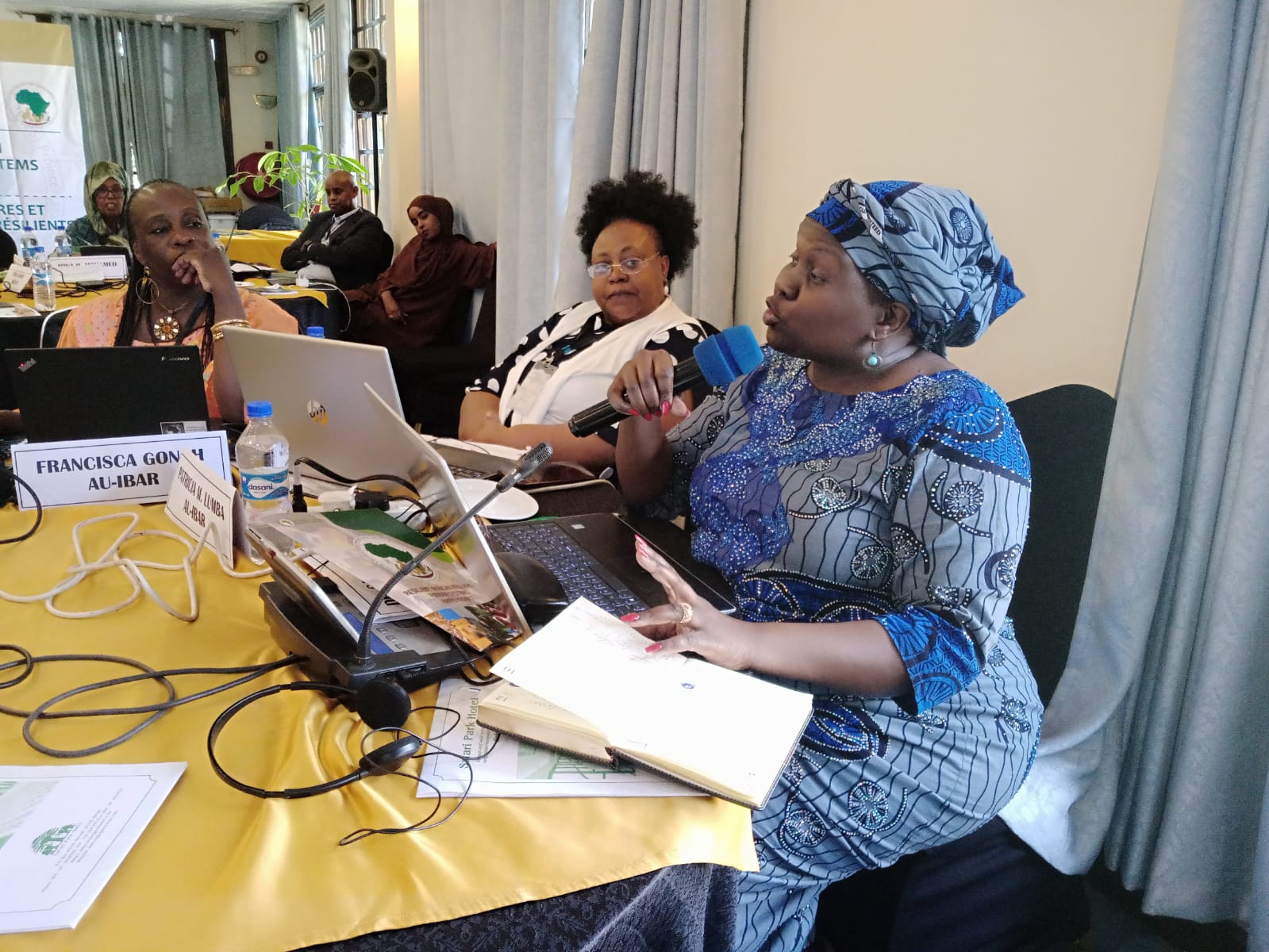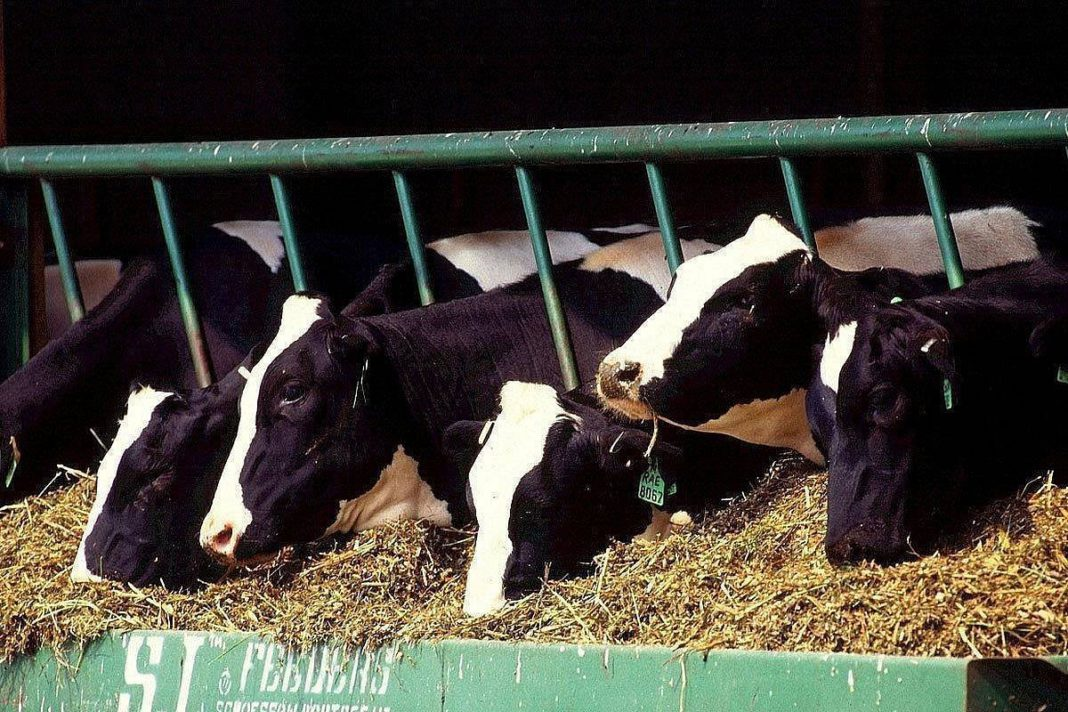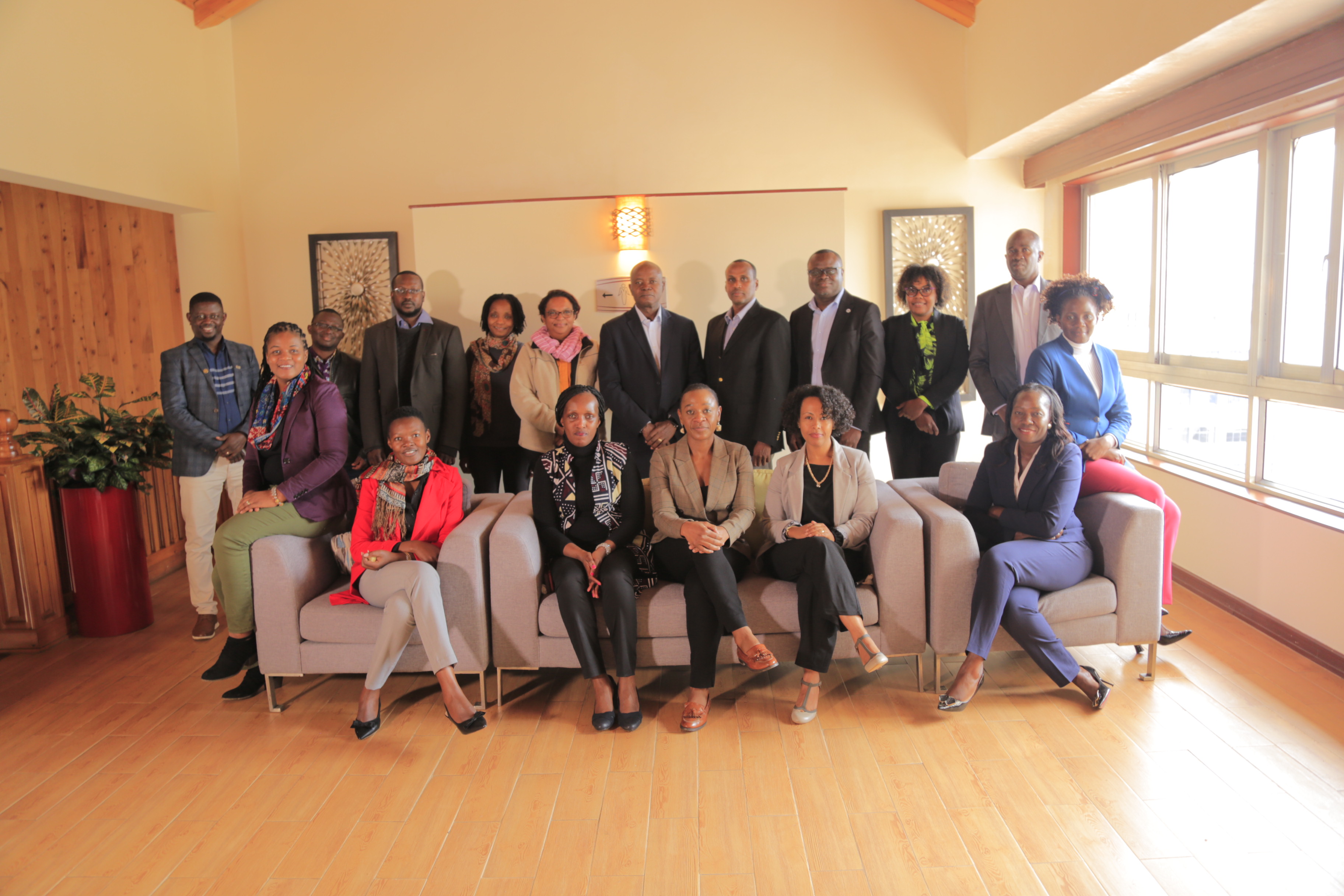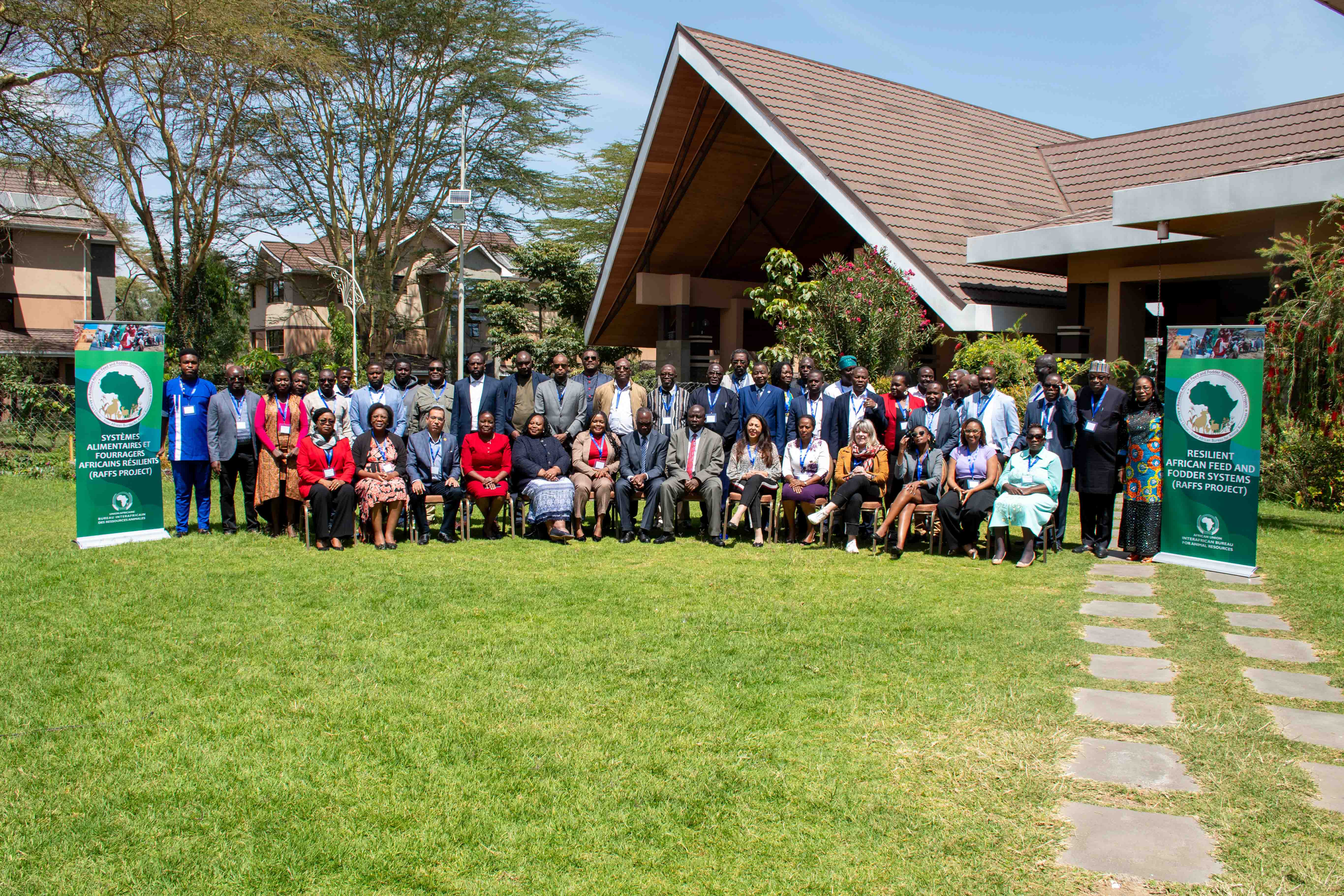The RAFFS Project aspires to make substantial contributions to food security and nutrition by ensuring the continued sustainability of Africa's livestock sector through promoting development of feed and fodder systems. Successful implementation of the Project is anticipated to deepen our understanding of the impacts of crises on feed and fodder systems, catalyze action and investment, and instigate systemic changes aimed at enhancing the organization and performance of the feed and fodder sector.
In light of the significance of this initiative, scholars and practitioners are invited to make submissions of abstracts for articles that will be featured in the Special Issue on Resilient African Feed and Fodder Systems of the Bulletin of Animal Health and Production in Africa (BAHPA)
View Full Post and Comments
NAIROBI, Kenya, Feb 5 – In a resounding call to action, experts and various stakeholders from across 6 African countries say the feed and fodder sector must be reformed for its full potential to be realized.
At the center of the calls is the need to involve women in a more pivotal role, in a bid to drive economic growth and foster resilience in the face of global challenges like climate change, global COVID-19 pandemic and conflict between Ukraine and Russia.
“We must change the narrative,” African Union-InterAfrican Bureau for Animal Resoruce’s (AU-IBAR) Dr Sarah Ashanut Ossiya said. “It is us who decide it and to articulate it.”
https://www.capitalfm.co.ke/news/2024/02/enough-of-the-talk-action-now-stakeholders-appeal-for-change-in-feed-and-fodder-sector/
Continue Reading
https://www.standardmedia.co.ke/business/business/article/2001489615/kenya-hosts-high-level-meeting-on-livestock-sector-challengesAfrican Union-InterAfrican for Animal Resources (AU-IBAR) Director Dr Huyam Salih said the three crises commonly referred to as “the three C’s” exposed Africa’s vulnerability, leading to eroded livelihoods, loss of incomes, and driven up prices of highly nutritive livestock sourced foods making them inaccessible to sections of the population that need them most.
Continue Reading
A high-level meeting meant to adopt strategies to address the current Africa's feed and fodder crisis kicked off in Nairobi on Monday, bringing together a host of experts from the continent.
The five-day Resilient African Feed and Fodder Systems (RAFFS) Project Technical and Steering Committee meeting is being hosted by the African Union-InterAfrican for Animal Resources (AU-IBAR).
The RAFFS Project was rolled out in January 2023 and has focused on understanding the situation of the effect of the global COVID-19 pandemic, climate change and conflict between Russia and Ukraine in the feed and fodder sector.
View Full Post and Comments
Opinion Piece by Patricia Lumba; Senior Knowledge Management Officer, AU-IBAR

In a world where natural disasters and unforeseen crises have become all too familiar, the efficiency and effectiveness of our emergency responses are paramount. While we often hear about the heroic efforts of first responders and the importance of humanitarian aid, there's a critical aspect of emergency response that often goes unnoticed – the management of feed and fodder resources for livestock. It's a topic that doesn't often make headlines, but its significance cannot be overstated. At the heart of this crucial task lies the unsung hero: data and information. In this opinion piece, I will delve into the indispensable role of data and information in emergency response for feed and fodder.
Continue Reading
 The African Union Commission recently organised a meeting of communications experts from across the African Union entities and partners to discuss strategic communications for the Comprehensive Africa Agriculture Development Programme (CAADP).
The African Union Commission recently organised a meeting of communications experts from across the African Union entities and partners to discuss strategic communications for the Comprehensive Africa Agriculture Development Programme (CAADP).
The gathering of communications experts focused on refining communication workplans and methods to enhance awareness and understanding of CAADP's goals and initiatives. The experts highlighted the pressing need for improved strategies for communication and enhanced collaborative efforts to drive agricultural development across the continent.
Continue Reading
 The African Union InterAfrican Bureau for Animal Resources (AU-IBAR) organised an important Stakeholder Initiation and Consultative Workshop from 24th to 28th July 2023 in Naivasha, Kenya.
The African Union InterAfrican Bureau for Animal Resources (AU-IBAR) organised an important Stakeholder Initiation and Consultative Workshop from 24th to 28th July 2023 in Naivasha, Kenya.
The meeting was organised under AU-IBARs Resilient African Feed and Fodder Systems (RAFFS) Project. The project aims to enhance collaboration across the continent to address issues of lack of sufficient feed and fodder which are critical for the development of livestock and agricultural sectors.
Continue Reading
Kenya will on Monday host a high-level five-day workshop to discuss feed and fodder shortage, and the adverse effects the crisis has caused- including a sharp increase in nutritious foods sourced from livestocks.
We are all crying about the high cost of eggs and milk, which is a direct impact of the feed and fodder shortage crisis.
With the ongoing war between Russia and Ukraine, growing effects of climate change and the global COVID-19 pandemic, the situation is dire, unless mitigative researched-based measures are adopted.
Continue Reading
In her country Zimbabwe, Jacquie Gowe is nicknamed ‘Queen Bee’. A coincidence since she comes from a tribe that is known for loving “sweet and sophisticated things,” in Maungwe.
Her nickname, Queen Bee, was derived from her daily job; she keeps bees for a living, as well as training women on beekeeping. Through her beekeeping, she is a major contributor to the feed and fodder sector.
So far, through her organization Sweet Maungwe, Gowe has trained more than 5,000 women.https://www.capitalfm.co.ke/news/2023/07/meet-queen-bee-the-zimbabwean-woman-empowering-thousands-of-women-in-beekeeping-agribusiness/#:~:text=Her%20nickname%2C%20Queen%20Bee%2C%20was,trained%20more%20than%205%2C000%20women.
“I keep bees of honey production, process it and package it. My passion is to train women for honey production,” she said.
Gowe was speaking at the sidelines of the ongoing five-day workshop by the African Union-InterAfrican Bureau for Animal Resources (AU-IBAR) in Kenya, to discuss ways to overcome the current feed and fodder shortage.
Gowe also attended the Workshop as a member of the African Union’s Africa Women in Animal Resources Farming and Agribusiness Network (AWARFA-N).
Continue Reading
A chronology of events detailing the intensity and impact of drought in successful years has painted a grim picture of the future, necessitating a need for mitigative measures to be adopted, and more so to cushion the feed and fodder sector.
The sector is currently facing a crisis due to a widespread shortage of feed and fodder, due to the three C’s; climate change, COVID-19 pandemic and the Russia-Ukraine conflict.
African Union- InterAfrican Bureau for Animal Resources has initiated an ambitious project dubbed Resilient African Feed and Fodder Systems (RAFFS) project, to help targeted African countries overcome the challenge.
RAFFS project officer Dr Sarah Ashanut Ossiya says the recent drought from late 2020 to 2022 and early 2023, “had the unprecedented feature of being the first with five consecutive rainy season failures, a climatic event not seen in 40 years, with massive loss of livestock and wildlife.”https://www.citizen.digital/news/raffs-project-launched-to-cushion-african-countries-against-animal-feed-and-fodder-shortages-impact-n324291
Continue Reading





 T
T